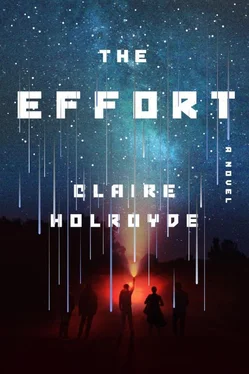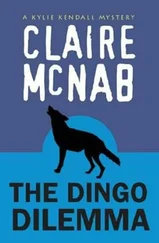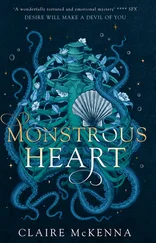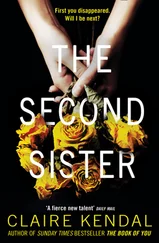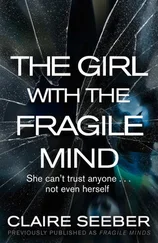“It was the winds that caused the most trouble—”
Troy started and stopped himself.
“Anyway, blame the hurricane,” he said. “That’s always easiest.”
Troy sidestepped around Love and reached the top of the stairs. Love suddenly switched from standing slack-jacked and dumbstruck to sprinting and lunging at Troy. She grabbed the fabric of his jumpsuit. He looked prepared for her reaction, just not her speed and strength.
“I want to know,” Love croaked, “all of it.”
“But you don’t. My own wife and two children—”
“I don’t care about you!” Love barked.
And at that moment, she didn’t. All Love cared about was her Rivka. Troy narrowed his eyes and wrested free of her grip.
“The hurricane caused high winds to travel south along the coast,” he said. “It would have carried radioactive clouds toward North Carolina’s Fort Bragg. That’s the nation’s biggest military base. They couldn’t let that happen.”
Troy shook his head and said the government ordered pilots to seed the clouds over southern Connecticut, southeastern New York, and northern New Jersey with silver iodide to sow rain that wrung out all the deadly radiation. Love squeezed her eyes shut and shook her head violently. No, not Rivka. No! Troy mistook her refusal for disbelief.
“What do you think Russia did after the Chernobyl accident?” he asked. “To save Moscow and the larger cities to the northeast, they sacrificed everyone to the southwest. The smaller cities of Gomel and Novozybkov had black, radioactive rain as all the fallout was dumped on them—”
“Stop!” Love screamed.
Troy looked away, pained, and told Love to save her pity. Hurricane season was long over. It was spring, and most of the people in New York City had died of starvation by now. If they had stayed alive this long, it was by any means necessary.
“There was no food for months and months,” Troy whispered. “Nothing but the meat on their bones, if you want to count that. Some did. They figured morality wasn’t doing them any good. You can’t eat it.”
Love didn’t move or speak as Troy rushed past her and took several stairs in each stride. She heard him call out on the way down.
“Finish the mission. It is our only hope.”
* * *
June 2 T-minus 22 days to nuclear detonation
SEVERAL TIMES, LOVE had to stop rooting around in her gutted luggage to double over in ragged breaths. When weeping was inevitable, she curled up on the floor of her utility closet and howled. Goodbyes were always final in Love’s experience. Since her days in the orphanage in Nairobi, everyone in her life had an expiration that they knew like they knew their names.
When Love turned seventeen—an approximate age based on a designated birthday—she prepared for a mandatory discharge from her only home. Love packed up her hand-me-down clothes and the foreign novels that the nuns had given her. All the holy mothers were gathered by the door of the orphanage whispering prayers in many native tongues: Swahili, English, French, Spanish, and German. Sister Ellen’s voice rose above the rest. She had held Love as a bawling infant soon after her birth mother died. She even gave Love her name and willed fate to be kinder to a destitute orphan.
Before Love headed out to the nearest bus station, Sister Ellen placed a hand on her shoulder. She knew that Love had suffered under their roof, despite their vigilance. Sending a teenage girl off into the world on her own was like feeding her into the lion’s mouth, but they had little choice. Open your heart when it is safe , Sister Ellen whispered. Let the light in…
Sister Ellen may have meant Jesus. She may have meant a husband in Kenya and children who would follow. It was doubtful she meant a sassy, smart, and sexy Upper West Side Jew with big brown eyes, big hair, and a big heart. But that was exactly who Love let in, and they basked in each other’s light for a time.
Love wiped her eyes and nose on the sleeve of her jumpsuit before taking it off. She suddenly wanted to feel and look like a person, like herself. After pawing to the bottom of her suitcase for her tangled clump of jewelry, Love saw the Mets baseball hat she stole from Rivka’s closet on the night she left New York City. It was the only part of her lover that she could keep.
Love felt the cap’s orange embroidered letters and thought of her Rivka: her wry sense of humor, her smile and laugh, the ripe fullness of her body, the way she always tried to coax a smile. On the night Love abandoned Rivka for the Effort, there was no talk of love. Left unspoken, it was there as she placed her switchblade on Rivka’s pillow and walked out of their Bronx apartment unarmed. Love had found love , her calling since she was given a name.
Love hopped down two flights of stairs wearing one beaded earring with a dangling feather, the same earring she wore on the day of her arrival in French Guiana. Love ran through the lobby of the Space Museum out to the front entrance, where Zhen and Amy were saying their goodbyes. And here, like before, she realized she loved people at the verge of losing them.
“Sorry, I wasn’t sure I could do this,” Love muttered, then cleared her throat.
Zhen stood patiently. She had finally swapped her white lab coat for a military jumpsuit and steel-toe boots that looked too big.
“I want to give you something,” Love said, placing the baseball hat on Zhen’s head. “Even though you don’t look like much of a Mets fan.”
Zhen asked for a translation.
“Means you don’t look like a jackass,” Love clarified. “But it’ll keep the sun off your face.”
She adjusted the plastic snaps in the back.
“Looks better on you anyway,” Love whispered in Mandarin.
Zhen asked why Love never wore the cap herself. Love replied that she wasn’t much of a Mets fan, either, but more of a fan of a fan.
“It belonged to someone very important who will look over you now,” Love added. “Someone I loved.”
Her fingers drifted up one last time to touch the hat’s embroidery. Love was ambivalent on religion in adulthood, but she always believed in ghosts—the bad and the good. Zhen smiled and turned to look at an Asian man waiting for her in the back seat of a jeep. He nodded when she pointed to the hat, but he didn’t smile back. When Zhen turned back to the two women, her own smile had thinned into a tight line of fear.
Love felt an emptying in her gut: a familiar survivor’s guilt. The Effort had purged nearly half of its staff. Love was still shocked—and she was a distrustful person to begin with. But it was hard to argue with the reality that there wasn’t enough food. Half of their heroes were left to hang in the wind in order to save the remaining half who had to complete the mission. Love was one of very few interpreters chosen to remain on what was officially termed Bare Essentials. Chuck, Jin-soo, the Professor, and the rest of the Space Flight team would also stay to keep the HYCIV on course to intercept UD3, eject and detonate its lead impactor on the comet’s surface, and steer the nuclear charge into the crater. All other staff would join the unofficially nicknamed Bare Bones discharges.
Love opened her mouth, but she struggled to speak of the emotional thunderstorms that raged inside her. Instead of forcing out words, she reached for Zhen and held her instead. At least she could do that. Zhen wrapped her arms around Love’s torso and squeezed.
“I’m allowed to cry now, right?” Amy asked Zhen.
She burst into tears without waiting for an answer. Amy always did what Amy wanted. Zhen embraced her next, and Amy dropped her head onto her shoulder. Love watched her crown—unremarkable, greasy brown hair that grew to platinum—bob with hitching cries.
Читать дальше
